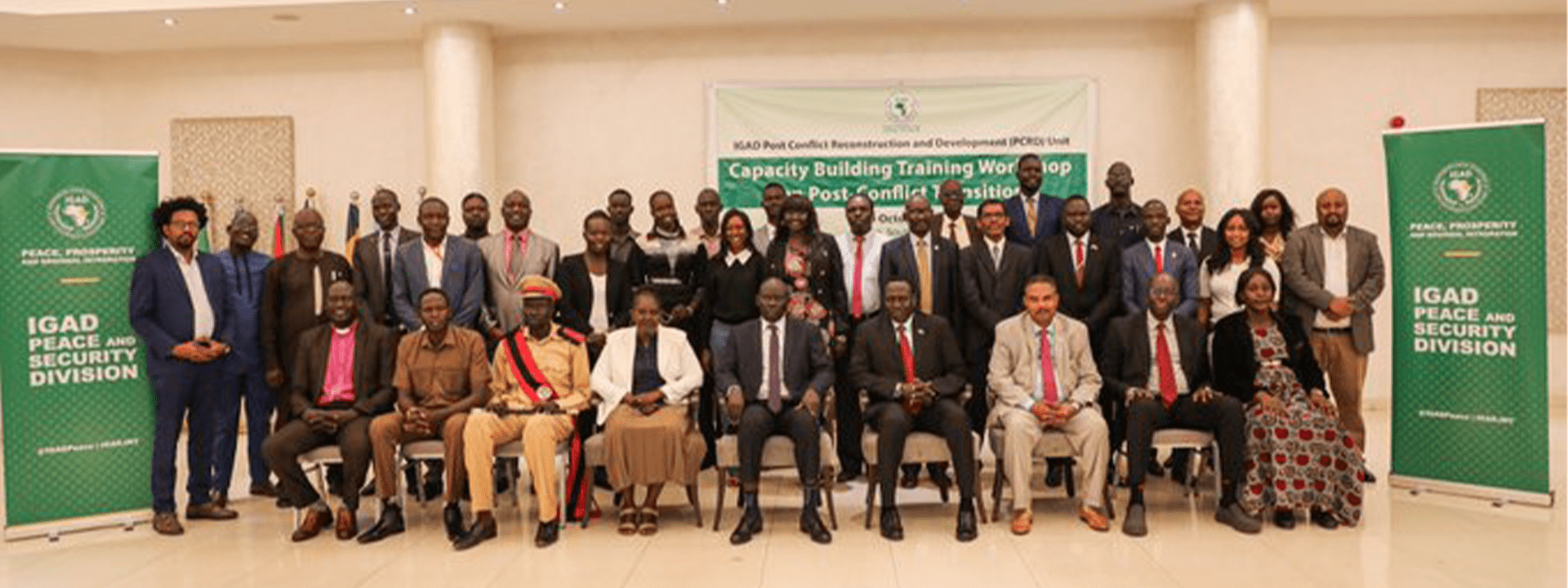October 10, 2024 (JUBA, South Sudan): The Peace and Security Division successfully conducted a four-day Capacity Building Training Workshop on Post-Conflict Transition in Juba, Republic of South Sudan. The workshop aimed to equip government officials and stakeholders with critical knowledge and skills on various aspects of post-conflict issues, focusing on enhancing institutional capacity for sustainable peace and development.
The opening session featured remarks from Commander Abebe Muluneh, Director of IGAD Peace and Security Division, and H.E. Amb Juma Dino, Acting General Director of Multilateral and Regional Organisations at the Ministry of Foreign Affairs and International Cooperation of South Sudan. Both leaders emphasized the importance of building institutional resilience and strengthening frameworks for conflict prevention, management, and resolution.
The workshop, which was attended by senior experts, government officials, and representatives from civil society organizations, offered an in-depth exploration of the African Union (AU) and IGAD Post-Conflict Reconstruction and Development (PCRD) frameworks. Participants engaged in discussions on key concepts related to conflict prevention, security governance, transitional justice, and the unique post-conflict challenges faced by South Sudan. Facilitators employed a participatory methodology, including presentations, group discussions, and case studies, to ensure a comprehensive understanding of PCRD principles.
The workshop is part of IGAD’s broader efforts to support South Sudan in its implementation of the Revitalized Agreement for the Resolution of Conflict (R-ARCSS). Through initiatives like these, IGAD continues to strengthen peacebuilding processes across the region, contributing to the overall stability and development of member states. This event represents a critical step towards enhancing the skills and knowledge of South Sudan’s institutions, enabling them to address the challenges of post-conflict transition effectively.
This workshop was supported by the European Union through the APSA Program.

